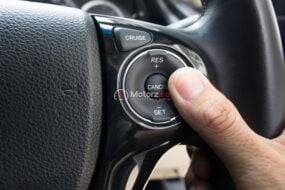Tire Talk All You Need to Know About Tire Maintenance are an integral part of our vehicles, yet they often receive less attention than they deserve. Proper tire maintenance is crucial not only for your Tire safety but also for the longevity of your tires and overall vehicle performance. In this comprehensive article, we will delve into all you need to know About Tire Maintenance from understanding the basics to advanced tips and tricks.
Regular Inspections
About Tire Maintenance begins with regular inspections. Visual checks can help identify any visible issues like punctures, cuts, or abnormal wear patterns. Look for objects lodged in the tread and ensure there are no visible cracks on the sidewalls. Performing these checks at least once a month can catch potential problems early and save you from costly repairs or replacements.
Tire Pressure
About Tire Maintenance the correct tire pressure is one of the most critical aspects of tire maintenance. Improper tire pressure can affect fuel efficiency, handling, and even lead to blowouts. Refer to your vehicle’s owner’s manual or the placard inside the driver’s door jamb to find the recommended tire pressure. Check the pressure when the tires are cold, using a reliable tire gauge. Don’t forget to inspect and maintain the spare tire as well.
Rotation
Tires wear unevenly due to various factors, including front-wheel drive, vehicle weight distribution, and alignment issues. Regular tire rotation helps ensure even wear across all four tires, extending their lifespan and improving performance.
Alignment
Proper wheel alignment is crucial for maintaining tire health. Signs of misalignment include steering wheel vibration, drifting to one side, or uneven tire wear. If you notice these symptoms, have your vehicle’s alignment checked and adjusted by a professional mechanic.
Balancing
Wheel balancing ensures that weight is evenly distributed around the tire and wheel assembly. An unbalanced wheel can cause vibrations, leading to premature tire wear and reduced ride comfort. When you replace or rotate your tires, make sure they are balanced by a qualified technician.
Tire Tread Depth
Tire tread depth directly impacts traction and handling. To check your tread depth, you can use a tread depth gauge or the penny test. If the tread depth is near or below 2/32 of an inch (1.6 mm), it’s time to replace the tires. Bald tires are dangerous, especially in wet or snowy conditions.
Tire Repairs
Small punctures and minor damage can often be repaired by a professional tire technician. However, it’s essential to follow industry standards and guidelines for tire repair. Patching or plugging a tire improperly can compromise safety. Different seasons demand different tires. All-season tires are suitable for most conditions, but if you live in an area with harsh winters, consider winter tires for improved traction on snow and ice. Ensure you have the right set of tires for the season and change them accordingly.
Tire Storage Replacement
If you have an extra set of tires for seasonal changes, proper storage is vital. Use tire covers to protect them from dust and moisture. Before reinstalling seasonal tires, inspect them for any damage or signs of aging.No tire lasts forever. When it’s time for replacement, choose tires that match your vehicle’s specifications and your driving needs. Look for tires that offer good traction, handling, and tread life. Investing in quality tires is an investment in your safety and overall driving experience.
Conclusion
About Tire Maintenance is a fundamental aspect of vehicle ownership that should not be overlooked. Regular inspections, proper tire pressure, rotation, alignment, and balancing are essential for tire longevity and safety. Additionally, understanding seasonal tire needs and knowingKnow when to replace tires are crucial factors in maintaining your vehicle’s optimal performance. By following these tire maintenance tips, you can ensure a safer, more comfortable, and cost-effective driving experience for yourself and your passengers. Remember, your tires are the only point of contact between your vehicle and the road, so taking care of them is taking care of your safety.
Know About Tire Maintenance
Proper Tire Maintenance
Tips About Tire Maintenance
tubeless tire maintenance
You Need to Know About Tire Maintenance











